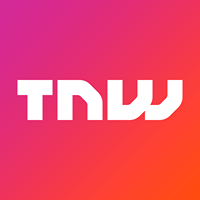
10 Popular Magazines for Learning English Technology Vocabulary
If you want to challenge your English skills, try reading the news without using a dictionary.
Terms like Bitcoin mining and carbon footprint are all over the news, which is why it helps to know technology-related English.
To learn this, you can turn to magazine articles related to the tech industry.
We’ll share 10 popular technology magazines to practice your reading skills, improve your listening skills, pick up some essential technology vocabulary and learn different styles of English writing.
Contents
- Why You Should Learn English for Technology from Magazines
- How to Learn Technology Vocabulary With English Magazines
- 10 Great Magazines to Teach You English for Technology
- And One More Thing...
Download: This blog post is available as a convenient and portable PDF that you can take anywhere. Click here to get a copy. (Download)
Why You Should Learn English for Technology from Magazines
Many places offer English lessons for a career in technology. You can try taking English courses with a focus on science and technology. Coursera, for example, has many free classes.
Another option, of course is to learn English for technology from magazines that focus on new and important technologies and their effects on our lives. As these publications report on current stories, you’ll pick up terms and concepts that are relevant and up to date.
When you choose to read from high-quality magazines like those recommended here, you’ll have access to writing that has gone through strict editing processes. This means that you’ll be exposed to (mostly) textbook grammar and proper word usage.
However, because of their public audience, these magazines will be more accessible and entertaining to read than research papers and journals. In other words, starting with magazines will keep you motivated and excited to learn more!
Here are some more reasons why you should learn English for technology from magazines:
- It’s the best way to keep up with the fast-moving technology industry.
No other industries move faster than technology. Do you remember the iPod? I won’t blame you if you don’t. Thanks to smartphones and music streaming services like Spotify, the iPod is now outdated technology. To keep up with the current English for technology, you will need to learn the terms that everyone is using!
- It can help you get a career in technology.
If you have an eye on a career in the industry, reading technology magazines will help. You’ll become familiar with acronyms like VR (Virtual Reality), AR (Augmented Reality), and AI (Artificial Intelligence). You’ll also begin to understand that these are not just buzzwords, but awesome technologies that are, or will be soon, affecting many aspects of human life.
- It can help you gain an understanding of how technology benefits many aspects of life and work.
Even if learning English for technology is just a hobby, it is still useful to know certain technology words, like Voice Search. An article about self-driving cars could start a discussion with your friends. Reading about the net neutrality controversy will make you more aware of the information you get on the internet.
Technology is present in many parts of your life, from how you learn new things to how you organize your work. Understanding the principles behind the many modern inventions will keep you informed about what you should or shouldn’t do on the internet as well as on your smart devices.
To build up your vocabulary even more, you can combine magazines with other English technology resources too.
Many places offer English lessons for a career in technology. You can try taking English courses with a focus on science and technology. Coursera, for example, has many free classes.
Another option would be to watch videos about technology on the language learning program FluentU, which makes every word easy to understand through interactive subtitles and transcripts.
FluentU takes authentic videos—like music videos, movie trailers, news and inspiring talks—and turns them into personalized language learning lessons.
You can try FluentU for free for 2 weeks. Check out the website or download the iOS app or Android app.
P.S. Click here to take advantage of our current sale! (Expires at the end of this month.)

With technology becoming such a big part of our lives, knowing the right English words can help you a lot, whether in everyday situations or even in your career.
How to Learn Technology Vocabulary With English Magazines
Before you dive into the world of English technology magazines, you should know how to learn from them. Follow these steps to begin learning English for technology:
1. Skim (that is, look through) the article.
2. Pick out words that you don’t understand or don’t see in your everyday reading. Some examples are: droids, humanoid bots, hi-def cameras and data interface.
3. Look up the words. If you can’t find a word in a general dictionary, a technology dictionary like TechTarget might help.
4. Reread the article to make sure you understand everything it says.
If you still don’t understand the article, repeat the steps with new vocabulary until you do! You can also try a simpler article and come back to it once you’ve learned a bit more technology English.
10 Great Magazines to Teach You English for Technology
Wired
Wired is a Conde Nast’s magazine that provides in-depth coverage on technology, its current and future trends and effects on culture, economy and politics. Wired is available online and in print.
There are many articles to use for reading practice on Wired. Just start with a topic you’re interested in. If you want to learn more about Artificial Intelligence, here’s an interesting article: “This AI-fortified Bot Will Build the First Homes for Humans on Mars.”
If you want resources to practice English for advanced learners, Wired is a good place to start.
CNET
CNET publishes product reviews, how-to guides, deals on gadgets and the latest tech news. One might say that CNET is more technical than Wired as most of its pieces, especially the reviews, focus solely on the products and their technologies.
If your English is at the beginner or intermediate level, you might find CNET’s how-to section useful. There are guides about many aspects of technology like computers, wearable tech, photography and home entertainment.
The writing is concise with easy-to-follow short paragraphs, which are ideal for learners to understand the language and get hold of complex concepts.
Here’s a good example: “Buying and Selling Bitcoin, Explained.“
Digital Trends
Digital Trends is a website similar to CNET that publishes technology news, product reviews and how-to guides.
An English learner can use Digital Trends to improve not only reading skills but also listening comprehension, since the website produces and hosts many videos and podcasts. The Trends with Benefits podcast, for example, is a great learning resource. Each show is a half-an-hour discussion about the current trends. Each podcast is also summarized with the key points discussed in the show.
Once you finish listening to a show, you can use the outlines to check if your understanding is correct and sufficient. The podcast also shows you the difference between conversational English and the formal written English that you find on the rest of the site.
Here’s a podcast that you can start with: “Trends with Benefits: VR Does Vegas, Musk Eyes Mars, Samsung is Blowing up.”
Technowize
Technowize is a magazine focusing on digital technology that covers new stories in technology. It has articles about hardware, apps, software, gadgets, cloud, big data as well as business news and events.
English learners can practice by reading one of their latest technology articles, like “Top AR & VR Headsets of 2018,” or by watching one of the available videos on the site, such as “The First Trailer For Edward Snowden Movie ‘Snowden’.”
Mashable
Mashable is a digital media website, founded in 2005. It covers many topics including business, culture, entertainment and social good. In the Tech section, you can find the latest news as well as what’s big at the moment. If you don’t have much time to spare, their short videos make excellent material for quick listening practice.
Here’s one to check out: “The Hidden Cost of a Conveniently Connected World.”
ReadWrite
ReadWrite is a technology blog that covers web technology as well as industry news, reviews, analysis and everything related to the Internet of Things.
Since it’s a blog, the English writing found on the site is less formal than that of traditional print magazines. Many stories are told in the first person, and their tone is more informal and conversational. If you’re interested in blogging, this site is a great resource.
Here’s a blog post on the Internet of Things: “Websockets and IoT: Why Don’t the Two Go Together?“
The Next Web
The Next Web (TNW) is a media company. Its original purpose was to promote a tech event that showcased new startups. As its influence grew, TNW News become a source for the latest updates about technology and startups.
If you want to practice reading English for technology, why don’t you check out this article from TNW News: “Is 2018 the Year Wires and Cords Become Obsolete?“
TechCrunch
TechCrunch is an online publisher with a focus on technology news and startups. It also has video reports for English learners who want to improve their listening skills.
Every day, reporters used to round up the most significant stories on TechCrunch into a Crunch report, which could be excellent material for your study. The Crunch report is no longer airing, but you can still check out the older reports, like this one: “GoPro Cuts 200-300 Jobs.”
MIT Technology Review
MIT Technology Review is the oldest and the most traditional publication in this collection. It was first published by the Massachusetts Institute of Technology in 1899. In its own words, the magazine’s mission “is to equip its audiences with the intelligence to understand a world shaped by technology.”
English learners will find the writing in MIT Technology Review articles high quality and conventional. If you’re ready for a reading challenge, check out this article in the sustainable energy section: “The Year Climate Change Began to Spin Out of Control.”
Gizmodo
Gizmodo is a website that covers a broad spectrum of topics from design to science fiction to politics. In the Science section, English learners can find interesting articles about scientific discoveries and the technology that comes with them.
Here’s one for your reading practice: “We’ve Entered a New Era of Quantum Computing.”
Learning English for technology is challenging, but it can help you get ahead in your career or be savvier in everyday life. The ten magazines we listed are valuable resources for your learning as you can pick up essential vocabulary, imitate different writing styles and gain a broad and current knowledge of technology.
Download: This blog post is available as a convenient and portable PDF that you can take anywhere. Click here to get a copy. (Download)
And One More Thing...
If you like learning English through movies and online media, you should also check out FluentU. FluentU lets you learn English from popular talk shows, catchy music videos and funny commercials, as you can see here:
The FluentU app and website makes it really easy to watch English videos. There are captions that are interactive. That means you can tap on any word to see an image, definition, and useful examples.
For example, when you tap on the word "searching," you see this:
Learn all the vocabulary in any video with quizzes. Swipe left or right to see more examples for the word you’re learning.

FluentU helps you learn fast with useful questions and multiple examples. Learn more.
The best part? FluentU remembers the vocabulary that you’re learning. It gives you extra practice with difficult words—and reminds you when it’s time to review what you’ve learned. You have a truly personalized experience.
Start using the FluentU website on your computer or tablet or, better yet, download the FluentU app from the iTunes or Google Play store. Click here to take advantage of our current sale! (Expires at the end of this month.)





















